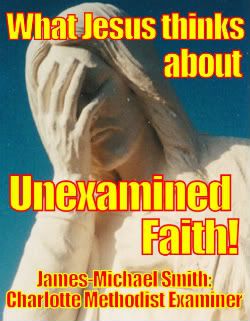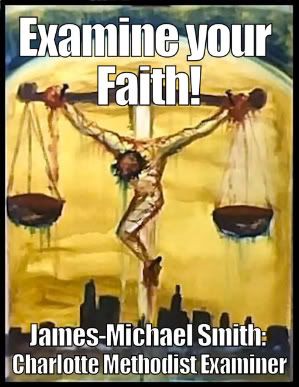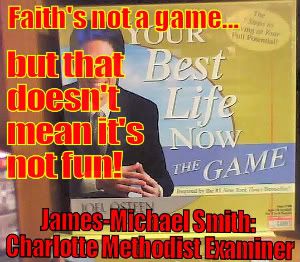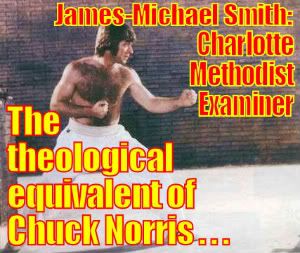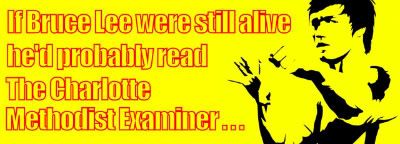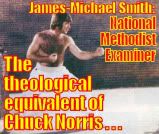"
Now concerning the unmarried, I have no command of the Lord, but I give my opinion as one who by the Lord's mercy is trustworthy. I think that in view of the present distress it is well for a person to remain as he is.Are you bound to a wife? Do not seek to be free. Are you free from a wife? Do not seek marriage. But if you marry, you do not sin, and if a girl marries she does not sin. Yet those who marry will have worldly troubles, and I would spare you that.
I mean, brethren, the appointed time has grown very short; from now on, let those who have wives live as though they had none, and those who mourn as though they were not mourning, and those who rejoice as though they were not rejoicing, and those who buy as though they had no goods, and those who deal with the world as though they had no dealings with it. For the form of this world is passing away.
I want you to be free from anxieties. The unmarried man is anxious about the affairs of the Lord, how to please the Lord; but the married man is anxious about worldly affairs, how to please his wife, and his interests are divided. And the unmarried woman or girl is anxious about the affairs of the Lord, how to be holy in body and spirit; but the married woman is anxious about worldly affairs, how to please her husband.
I say this for your own benefit, not to lay any restraint upon you, but to promote good order and to secure your undivided devotion to the Lord."
(1Corinthians 7:25-35; RSV)
------------------
"But in the present state of things which is like that of an army placed in battle order, is it not fit that the Cynic should without any distraction be employed only on the ministration of God, able to go about among men, not tied down to the common duties of mankind, nor entangled in the ordinary relations of life, which if he neglects, he will not maintain the character of an honour- able and good man? And if he observes them he will lose the character of the messenger, and spy and herald of God. For consider that it is his duty to do something towards his father in law, something to the other kinsfolks of his wife, something to his wife also (if he has one)...How can he have time for this who is tied to the duties of common life?
...Consider what we are bringing the Cynic down to, how we are taking his royalty from him.
--Yes, but Crates took a wife.
--You are speaking of a circumstance which arose from love and of a woman who was another Crates. But we are inquiring about ordinary marriages and those which are free from distractions, and making this inquiry we do not find the affair of marriage in this state of the world a thing which is especially suited to the Cynic."
(Epictetus, Discourses 3.22.62-76)
-----------------------
Many students of the New Testament have noticed that Paul’s advice on marriage as found in 1Corinthians 7:25-35 is very similar to Epictetus’ (pronounced ehh-pick-TAY-tuss) writings on the same subject, as found in Arrian’s Discourses of Epictetus III.xxii.62-76. Given the remarkable similarities, some have been tempted to jump to the conclusion that Paul was directly dependent on Epictetus for his ideas. This happens frequently when portions of the Bible parallel other ancient writings.
In this instance however such dependence was highly unlikely, if not impossible—the main reason being that Epictetus was born almost the same year in which Paul wrote his letter to the Corinthian Christians (ca. 55 A.D.)!
Nonetheless Paul’s advice did not originate in his own mind exclusively, nor was it indicative of a traditional Hebrew view of marriage. The advice given in 1Corinthians 7 (which Paul goes out of his way to state is merely his own opinion) can, most likely, be traced back to another source. Before determining that source, let us look at the key similarities between these two writings, which point towards a possible common source.
Both Paul and Epictetus seek to offer advice on whether marriage is acceptable for people of their own community—Paul speaking about the Christian and Epictetus speaking of the Cynic.
Both feel that the lifestyle of the devotee (whether Christian or Cynic) requires so much effort that marriage would most likely distract from the pursuit of the greater good.
Both concede, however, that if one is to marry, it should be to a spouse who is of the same beliefs.
Both view their faith as a struggle against the forces of the world; Paul only alludes to this in verse 31, however spiritual warfare is a prevalent theme throughout many of his other letters. Epictetus clearly states that the present age “is like that of a battle-field.”
Perhaps the greatest similarity between the two writings is the idea that the duties involved in caring for one’s family often get in the way of the duties involved in serving God--both use a form of the word "aperispastos" (undistracted/free from distraction) to describe the way in which one is to serve God.
Finally, neither Paul nor Epictetus feels that marriage is of prime significance in the life of one following God.
These similarities are too great to be coincidence; however, we know that Paul did not read Epictetus and we can be pretty sure that Epictetus wasn’t influenced by Paul. So what should we conclude?
Well, we know that Epictetus was a devoted Cynic and that Cynicism had been around since the 3rd century B.C. Crates, whom Epictetus mentions, was among the more famous Cynics whose teachings had greatly influenced nearly every aspect of Greek and Roman culture.
The Cynic view of marriage had been around for centuries and had spread throughout the Roman Empire, including Corinth. The fact that Cynics and early Christians were sometimes confused is of no small importance. These two worldviews had many things in common, as noted above.
However they were only similar on the surface. Where Cynics served God because they felt it was a noble endeavor, Christians served out of love for God and gratefulness for their salvation. The God of the Cynic was a distant, impersonal deity whereas the God of the Christian was personal and close. The Cynic sought to better himself; the Christian sought to allow Christ to better him. There are many other significant differences, thus they far outweigh the similarities.
So why does Paul seem to endorse the Cynic view of marriage?
The best explanation is that Paul was using an aspect of culture as an entry point for the message of the Gospel. Just as he had done on Mars Hill (see Acts 17), Paul is seeking in 1Corinthians 7 to take an aspect of Greco-Roman culture and show how it still carries a faint trace of God’s original plan for all of mankind.
As a Hellenistic Jew (i.e. one raised and educated in the Greco-Roman world of Tarsus rather than in Judea), Paul was very familiar with this culture. In this passage, the message is clear: our relationship to God takes precedence over our human relationships, even the closest ones. Since the Corinthians would have already been familiar with this concept, Paul subtly uses it to teach the Christian perspective.
The implications of Paul’s use of Cynic views should be obvious for the modern Church. If the Apostle familiarized himself with surrounding culture enough to use it to illustrate aspects of the Gospel message then Christians today should by no means close themselves off to their culture in a “circle-the-wagons” mentality.
Rather than going the route of the Essenes (the group who compiled the Dead Sea Scrolls and who secluded themselves in the Judean wilderness in order to avoid corruption of Jerusalem culture), Christians should seek to permeate their society at all levels so that they may be "the aroma of Christ” (2Corinthians 2:15) in this world.
After all, that is precisely one of the main “
affairs of the Lord” that Paul is concerned about marriage taking away from—the preaching of the Gospel to a world in need!
JMS
